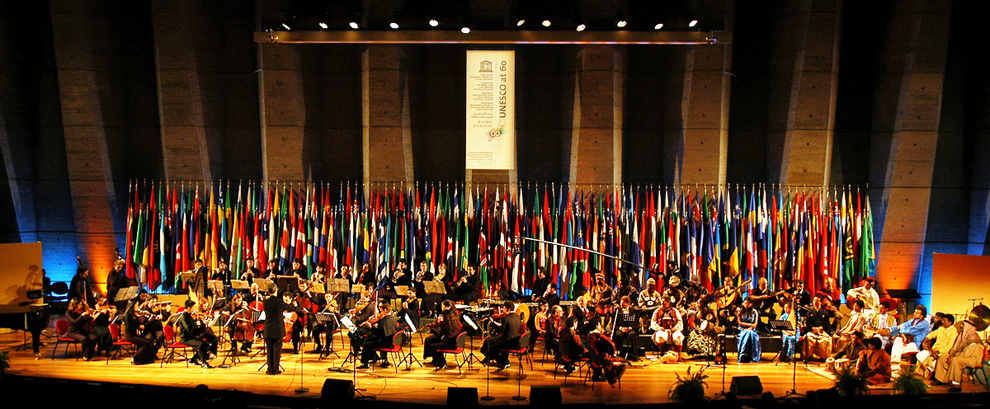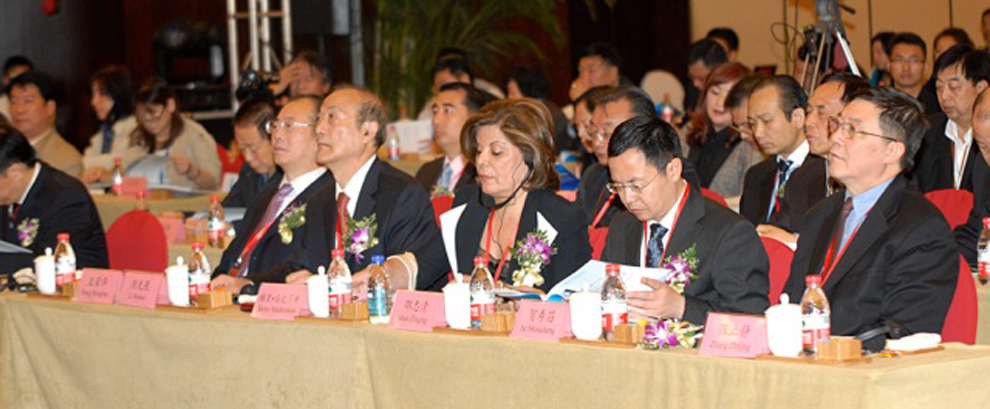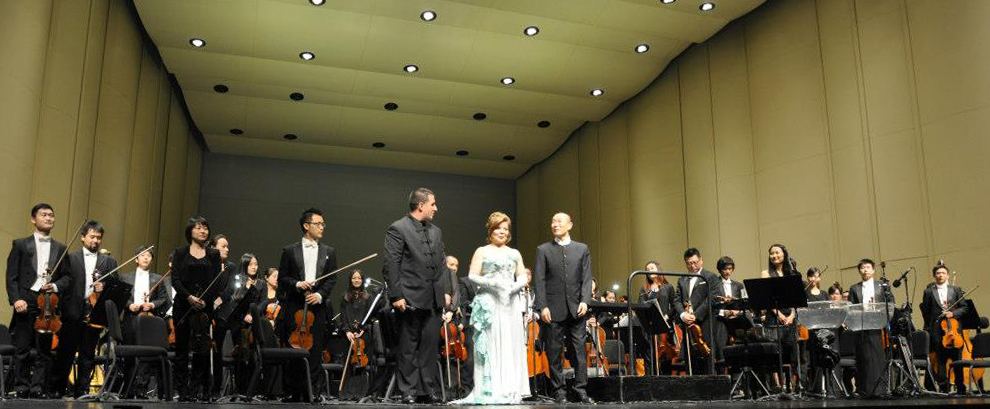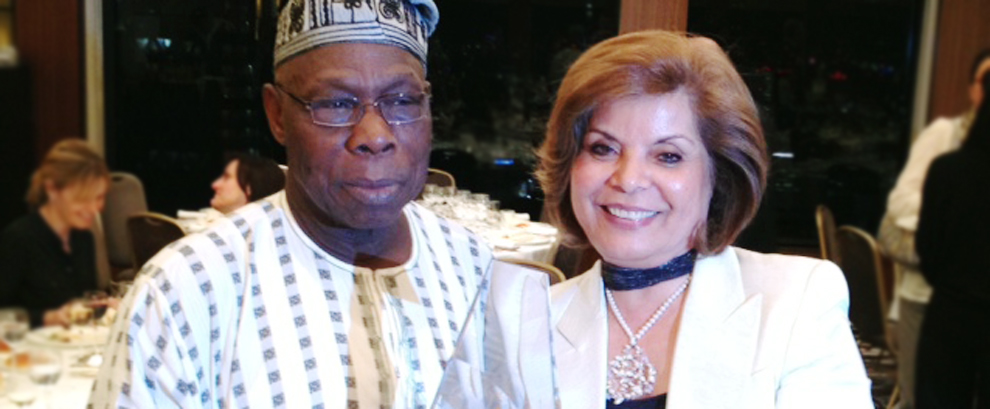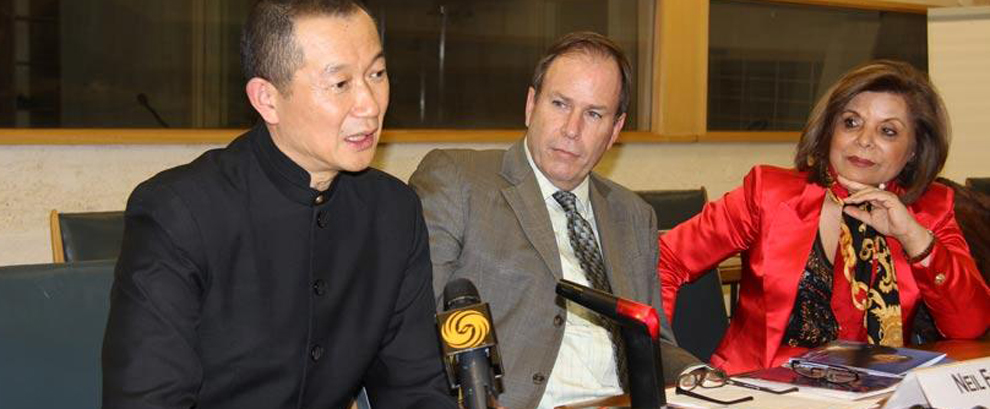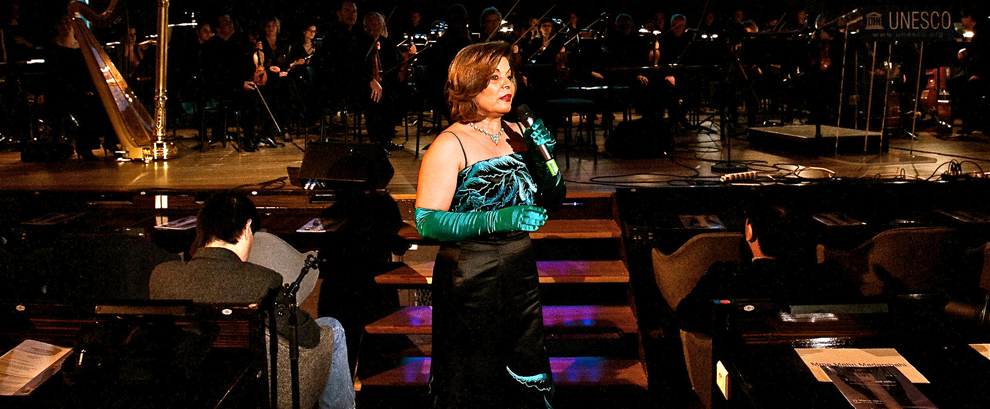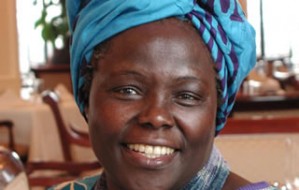
MaximsNews Network
By Mehri Madarshahi
Nobel Peace Laureate Wangari Maathai has contributed a new interpretation to the notion of peace, challenging prevailing wisdom and traditional approaches. The 2004 Nobel Peace Committee took up this challenge by recognizing the innate links between peace, democracy, prosperity and sustainable development as advocated by Wangari. Soon after, it wasn’t only the Nobel Committee, but the world at large that professed acceptance of the need for a balanced ecological system of the planet as an essential precondition and conduit for peace and prosperity.
It all started with the simple planting of a tree some thirty years ago! To date, Wangari is the proud mother of some thirty million trees in Kenya – thirty million trees that have provided fuel, food, income and prosperity for women members of the Green Belt Movement. Wangari had founded the Movement in 1977 in her backyard in Nyeri, north of Nairobi, to combat soil erosion and to produce sustainable wood for fuel use.
In response to my question on how she managed to finance the first few million trees, she smiled and responded “I just walked into the Forestry Ministry in Nairobi, demanded 15 million seedlings for planting trees and they gave me what I wanted”.
But, as it turned out, this was not free of controversies! Wangari realized that by planting trees and encouraging others to follow in her footsteps, she had entered a serious game touching directly on the allocation of fertile land by the authorities to large-scale farming in tea and coffee plantations. She observed that the diminishing availability of fertile land, compounded by the absence of systematic plans to provide assistance to impoverished farmers, many of whom women, was rapidly causing a weakening of self-sustainability, increased poverty and malnutrition among peasants in Kenya. Seeking help from the Government, she once wrote;
“People do not have the capacity to exploit natural resources to their benefit because they lack capital and skills, hence governments should protect them rather than encouraging people with money to exploit the resources”. It didn’t take that long for the power establishment in Kenya to consider her activities as defiant and punishable by law. Soon, she received death threats and while campaigning to stop illegal logging in forest reserves she was arrested. After her release in the mid-1980s, Wangari’s marriage ended in divorce. At the time, her husband described her as “too educated, too strong, too successful, too stubborn and too hard to control”. She fled with her three children to Tanzania. She was arrested a second time, when she was forming a women’s group to protest the torture of political opponents by the regime of President Danile arap Moi and while on hunger strike, she was beaten unconscious by the police. “Every time you provide leadership, every time you speak out, you expect suffering for what you believe in,” she thoughtfully observed.
Her advocacy for women’s rights in Kenya is based on a simple philosophy. She has tried to teach them how to believe in themselves and how to seek the solution for their problem by learning to ask pertinent questions and to demand from the State better governance, more accountability and respect for the rule of law. She told me that she has never been hesitant to challenge both the government and international developers whose only interest was advancing growth without consideration of environmental degradation. “Vegetation was disappearing at an alarming rate from my area. Droughts became more frequent. Rivers were drying up. People were going hungry. Being a great believer that a solution to most problems must come from within, from us, I had to pursue relentlessly my ideologies which at the end did not please many in the position of authority and my personal life suffered as a result”.
Wangari’s long struggle in what Kenyans call the “pro-democracy” movement yielded success. In 2002, after the electoral defeat of Moi’s handpicked successor, she was elected to Parliament beating her nearest opponent by a 50 to 1 margin. She did not stop at that and decided to take a bold step by running for the presidency. She did not achieve this ultimate goal, but in the new Government she was offered the post of Deputy Minister in the Ministry of
Environment.
In 2004, she was asked to address the official opening of the UK Commission for Africa, chaired by Prime Minister Tony Blair. The Commission’s purpose was to design a comprehensive program in support of African development and to propose funding sources.
A simple, yet effective metaphor
When I asked her how practical it is to address the principles of good governance and democratic rule in Africa, she replied: “There is no choice. Africa has to move in that direction, and most leaders of the continent are aware of these important issues. My advocacy is based on a very simple principle. I drive the point home, by using a metaphor and that is of an Africa stool. I tell my fellow African that any stool should stand on three legs. A stable State, therefore,
should stand on respect for peace, democracy and sustainable development. Based on that conviction, Kenya in recent years has moved towards democracy and stability. Today while conflict still persists, its resolution is seen in finding peaceful means. The new challenge for us Kenyans is how to sustain this important achievement, since bad habits may die hard!” I then asked her if she had a message for women throughout the world in which way in particular her Nobel award might have an impact on the role of women in peace-building? She stated “I have been encouraged by this recognition. It recognizes women, their struggles and their commitment. Women in my country are encouraged to run for responsible government jobs. They needed empowerment to believe in themselves and to become agents of change to fight corruption, demand accountability and good governance, and this price provided them with that hope.” Wangari, who is justifiably credited with a miracle-like accomplishment in that she helped make a desert bloom is today a celebrity, a source of pride for Africa and in particular its women. She grew up when education was a priority only for boys. She had to beat the odds to become the first woman from Central and East Africa to earn a doctorate
in natural sciences.
Is she unstoppable?
“Winning the Nobel Prize is only the beginning. My struggle for preservation of human rights and environmental sustainability is by no means over”. Her next big fight will be with big business on genetically modified organisms (GMO’s). She declared “big business is managing to browbeat and bribe “poor Governments” into embracing genetically modified organisms”. Mathaai plans to use her prize money to set up her own Foundation.
She is indignant: “In Africa we are told if we only embrace GMOs, we will have no hunger.” But, she says, “People fear the control of seeds once they are patented and owned by ultinationals. They will not be owned by the farmer. Just like trade, he who owns the seed, owns the trade. You would be food-insecure.” Call her an environmentalist, a human rights, a women’s’ rights and a prodemocracy activist. All are accurate and to the point. She understands the battle is not about rights, as such, or the environment, as such. She understands the real battle is inside: “ordinary people” making that internal shift to realize the power that is theirs.
I asked her whether she would like to run for the presidency again. And here was the consummate politician, when she replied “there was, at present, no vacancy”. But she then quickly added with her familiar trademark laugh — “The sky is the limit. I never say never.”


